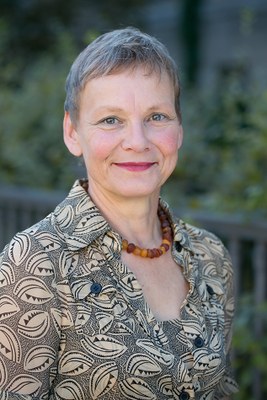"The Digital Teaching WG has done a great job"

HU-President Sabine Kunst
Photo: Matthias Heyde
On Monday, 20 April, the Humboldt-Universität zu Berlin, like all other Berlin universities, will start the 2020 summer semester, which will be dominated by digital teaching against the backdrop of the corona pandemic. Over the past three weeks, all those involved at HU have been working hard towards this goal. With what result?
We have prepared ourselves in the best possible way. The necessary tools for the digital courses have been acquired and set up. We will be able to offer more than 80 percent of our courses digitally. In some subjects and areas it is 30 percent, in others 100 percent. It always depends on the proportion of experimental courses or exercises, and these are much more difficult to implement online. This is all thanks to the immense commitment of all teaching staff and the science-supporting areas of the university - and the spectrum ranges from the procurement department to CMS and UB. The AG Digitale Lehre has really done a great job. Fortunately, we were able to draw on a strong expertise in streaming events and distance learning at the Institute for Library and Information Sciences. In addition, we have been able to gain experience in important individual projects on digital teaching at the HU in recent years. All of this has been a good basis from which colleagues have set out to explore new horizons. And very successfully, too. Reliable support will come from the task force at the Bologna Lab in the coming weeks. The latter will support the implementation of the digital formats with a zoom consultation hour and provide both didactic and practical assistance. There is also a wide range of surprising individual initiatives and courageous attempts. The theologians, for example, have developed the Moodle course "How to teach online", in which one gets the introduction to online teaching in a few steps. Our computer scientists have offered a webinar on the basics of online teaching, which is in great demand. More than 1000 interested people have already taken a look at it. All this is very encouraging and promising.
The summer semester 2020 will change the everyday life of students and lecturers and have far-reaching consequences. How is the Humboldt-Universität dealing with this? Important keywords in this context are the Ordinance on Compulsory Teaching and the teaching load.
These two keywords are indeed already being discussed and commented on very emotionally. It is a fact that the Ordinance on Compulsory Teaching (LVVO) is still valid. We will now - appreciating the extraordinary achievements of university teachers in digital teaching - have to make sure that sufficient teaching load for face-to-face teaching is carried over into the next semesters. This is also in order to ensure that, particularly in the natural and life sciences or in the sports sciences, teaching content that cannot be presented in an online format is conveyed. In coordination with the state, we use the flexible specifications of the LVVO to meet the interests of students and teachers as far as possible. Teaching duties that teachers cannot fulfil now will be made up for later in class. In all our considerations, we take into account the additional expenditure for digital teaching, because the effort for a good preparation and maintenance of new digital formats is much higher.
Ms Kunst, many Humboldtians have expressed the hope that the strict conditions for contact will be relaxed at the beginning of the semester. The decisions and recommendations of the Federal Government and the State have turned out differently. What will happen next?
I am very aware of this, but we have to accept that for the time being the regulations on emergency attendance will remain in place. This means that most colleagues will continue to work in their home offices. The number of those who are allowed to stay at the university to carry out unavoidable tasks, which is currently around 600, will not change for the time being. But we are preparing a rotation system that will allow more employees to be on site for a certain period of time.
Many people have worked hard in recent weeks to ensure that we can somehow deal with the strict regulations and still not have to give up our goals and projects. Of course, we have not fully satisfied every member of the university and every wish and need. This was simply not possible. But there are a number of solutions that improve the situation of the individual. Teachers, for example, have been able to use the university library's new and additional scanning service for a few days now to prepare their courses. We have upgraded all the technical equipment to make it possible to exchange and work together. The fact that the semester is not counted as a subject semester is an important relief for the students.
We are in close coordination with the state to help shape decisions on possible relaxation in accordance with health protection and our requirements. For the next two weeks, however, I must continue to ask all members of our university for their patience and understanding. I hope that everyone will succeed in dividing their energies well in view of the many challenges in families and at work. The lack of personal exchange, of talking to colleagues, of sharing a cup of coffee or tea - almost everyone finds this more difficult every day, and so do I. But I ask everyone once again for patience and confidence.
The questions were asked by Hans-Christoph Keller, press spokesman of HU.
Translated with www.DeepL.com/Translator
